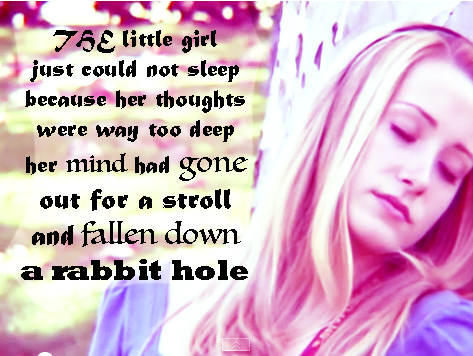“How do you know if you’re really suffering from insomnia? The basic answer is simple: you have the problem if you think you do…” – Janice Kennedy, 1986 Gazette
The haunting turmoil of sleeplessness may dwell completely in the mind, granting insomnia a tormenting power, for how does one fight a phantasm? Yet our existence is our perception, and understanding the very “figment” nature of sleep yields the keys to attaining it.
THE GOOD OL’ DAYS (AND NIGHTS)
 In college, I barely slept. I’d squeeze in what few hours of rest I could manage, between late night study sessions (to the literal tune of The Lion King), and vodka Redbull-fueled gatherings of glamorously loosened inhibitions. Starbucks venti iced coffees (and even the occasional trenta) propelled papers, projects, and party planning. In fact, one semester’s schedule was so skewed, that I simply planned a weekly “nap” rather than full night’s sleep each Tuesday night.
In college, I barely slept. I’d squeeze in what few hours of rest I could manage, between late night study sessions (to the literal tune of The Lion King), and vodka Redbull-fueled gatherings of glamorously loosened inhibitions. Starbucks venti iced coffees (and even the occasional trenta) propelled papers, projects, and party planning. In fact, one semester’s schedule was so skewed, that I simply planned a weekly “nap” rather than full night’s sleep each Tuesday night.
And yet, with this utter lack of sleep and insane amount of daily energy spent… I survived, ya know? I lived by the motto, “No one remembers the night they got plenty of sleep.”
Then I graduated.
I left the comforts of defined goals and deadlines, to enter a nebulous creative self-sustained world with no syllabus. The acute stressors of grades were replaced with the chronic stress of… life choices. At the same time, I now had time for sleep again. I became more health conscious. I cut out coffee. I read the sobering Lights Out: Sleep, Sugar, and Survival, about the dire necessity to get 9 hours of sleep nightly. I began tracking my sleep patterns. If I could control nothing else in this “real” world, I would at least get good sleep to erase the collegiate debt.
And what happened? Insomnia hit me like a plague.
TACKLING INSOMNIA
Ironically enough, trying to get good sleep may just be the ultimate damnation of a good night’s sleep. We should enter dreamland because of necessity, not out of lust for sleep perfection. In searching for sleep, you often lose it.
At first I tried sleep supplements as my main arsenal: melatonin, benadryl, valerian, GABA, etc. You name it, I tried it. While theses worked to varying degrees, they were quick fixes with less than stable track records. I could never seem to get the perfect combination. I found more benefit in sleep hacking by moderating caffeine intake, changing the amino acid profile of my proteins (oh hey glutamine and gelatin!), and majorly supplementing with magnesium. These dietary changes proved way more effective than the aforementioned sleep supplements. (More on those dietary changes in a later post.) But these changes, while likely affecting literal neurotransmitters, did not address a major governing factor.
Then I read a simple article, which revolutionized my bouts of insomnia. I read the concept and was like hmmm….. that’s very comforting. I began implementing the concept each time I’d wake up with insomniac fears. It has been a blessing.
SLEEP PERCEPTION
The 2011 reveiw, “(Mis)Perception of Sleep in Insomnia:A puzzle and a resolution,” cites dozens of studies showing that insomniacs consistently overestimate how long it takes to fall asleep, and underestimate how much they actually sleep. In simplest terms: if you have insomnia, you’re probably sleeping more than you think. A proposed mechanism for this, is that insomniacs may register Stage 2 Sleep (a “light” sleep stage), as actually being awake.
Furthermore, a 2015 University of Chicago study analyzed the sleep perception versus reality of 727 random adults, who wore sleep monitoring “actigraphs” on their wrists. The subjects kept sleep diaries recording how they thought they slept. The results are fascinating:
• 13% said they rarely felt rested upon waking, yet the actigraphs showed they only got 4 minutes less sleep on average than the rest of the group.
• The 42% who said they easily fell asleep, took about 26.77 minutes to nod off. Those who thought they had “trouble” falling asleep, in reality took about 30.33 minutes to fall asleep. Not much difference!
• Those who thought they had trouble sleeping through the whole night, actually got, on average, more sleep (19 minutes worth) than those who believed they slept soundly through the night.
These studies indicate that, at the very least, one’s perception of sleep often does not align with reality, and perception is what may create feelings of tiredness and insomnia.
Having this knowledge has helped me immensely, since often the fuel of restlessness is the worry of not getting “enough” sleep for the next day’s function. Knowing that insomnia may be a “misconception,” I can tell myself I am in fact sleeping, when worries of sleep quotas attack. When I now occasionally awake in the middle of the night, or am convinced I haven’t slept at all, I simply say, “Melanie, you ARE sleeping. The studies show it.” That shuts off my worries before they become full-blown restless torture.
Furthermore, this changed perspective has seemingly made supplemental and dietary influences on sleep work better. Before my awareness of perspective, I’d hit myself with sleep-inducing mechanism, and pray they’d work, looking to grab the first drowsy feeling I could… which often never arrived. Now that I know it’s all in my mind, I see calming supplements and neuroinhibitory transmitters (more on that later) as beautiful paths to sleep wonderland.
Paths I can choose to take, and do indeed take… whether I remember them or not.

